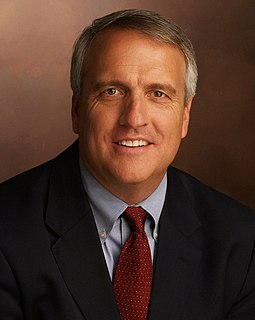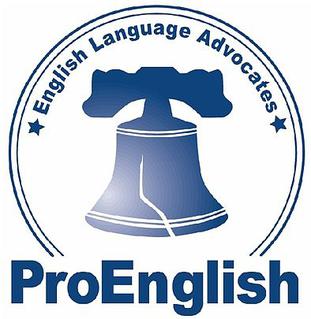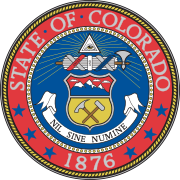
The United States Department of Justice (DOJ), also known as the Justice Department, is a federal executive department of the United States government responsible for the enforcement of the law and administration of justice in the United States, and is equivalent to the justice or interior ministries of other countries. The department was formed in 1870 during the Ulysses S. Grant administration, and administers several federal law enforcement agencies, including the Federal Bureau of Investigation (FBI), the United States Marshals Service (USMS), the Bureau of Alcohol, Tobacco, Firearms and Explosives (ATF), and the Drug Enforcement Administration (DEA). The department is responsible for investigating instances of financial fraud, representing the United States government in legal matters, and running the federal prison system. The department is also responsible for reviewing the conduct of local law enforcement as directed by the Violent Crime Control and Law Enforcement Act of 1994.

California Proposition 187 was a 1994 ballot initiative to establish a state-run citizenship screening system and prohibit undocumented immigrants from using non-emergency health care, public education, and other services in the State of California. Voters passed the proposed law at a referendum on November 8, 1994. The law was challenged in a legal suit the day after its passage, and found unconstitutional by a federal district court on November 11. In 1999, Governor Gray Davis halted state appeals of this ruling.

The 1995 Quebec independence referendum was the second referendum to ask voters in the Canadian French-speaking province of Quebec whether Quebec should proclaim national sovereignty and become an independent country, with the condition precedent of offering a political and economic agreement to Canada.
The Taxpayer Bill of Rights is a concept advocated by conservative and free market libertarian groups, primarily in the United States, as a way of limiting the growth of government. It is not a charter of rights but a provision requiring that increases in overall tax revenue be tied to inflation and population increases unless larger increases are approved by referendum.

Proposition 200, the "Arizona Taxpayer and Citizen Protection Act," was an Arizona state initiative passed in 2004 that basically requires: (a) persons to provide proof of citizenship to register to vote; (b) voters to present a photo identification before receiving a ballot at the polling place; and (c) state and local agencies to verify the identity and eligibility, based on immigration status, of applicants for non-federally mandated public benefits. The proposition also makes it a misdemeanor for public officials to fail to report violations of U.S. immigration law by applicants for those public benefits and permits private lawsuits by any resident to enforce its provisions related to public benefits. The requirement to provide proof of citizenship to register to vote was later ruled invalid in federal court.

The Colorado gubernatorial election of 2006 was held on November 7, 2006. Incumbent Republican governor Bill Owens was unable to run due to term limits, and the election was won by Democratic nominee Bill Ritter.
Defend Colorado Now (DCN) was a ballot initiative introduced in January 2006 to amend the constitution of Colorado to deny non-emergency public services that are not required by federal law to illegal immigrants in Colorado. It was similar to the recently approved Arizona Proposition 200 (2004), which denied public services to illegal aliens and California Proposition 187 (1994) which was declared unconstitutional by the Federal Appeals Court.

ProEnglish is an American nonprofit lobbying organization that is part of the English-only movement. The group supports making English the only official language of the United States. The group has also campaigned against immigration reform and bilingual education.

Colorado Referendum I was a proposed law that would have established domestic partnerships in the U.S. state of Colorado. The bill was passed by the Colorado General Assembly and was submitted to popular referendum during general elections on November 7, 2006.

Referendum H was a 2006 Colorado referendum to bar businesses from claiming a state income tax business deduction for wages paid to workers who were known at the time of hiring to be undocumented immigrants. It passed and it affected employees hired on and after January 1, 2008.

Jane Ellen Norton was the 46th Lieutenant Governor of Colorado and an unsuccessful candidate for the Republican nomination to challenge U.S. Senator Michael Bennet in the 2010 election. She lost the nomination to Weld County District Attorney and Tea Party favorite Ken Buck. Norton became the first executive director for the Denver Police Foundation on February 1, 2007, an organization created to enhance public safety and law enforcement in the Denver community. In 2013, Norton filed a lawsuit against the state of Colorado alleging tax payer money being used to provide abortions. The Colorado Supreme Court ruled against Norton in January 2018.

Kenneth Thomas Cuccinelli II is an American politician and lawyer serving as Senior Official Performing the Duties of the Deputy Secretary of Homeland Security since 2019. A member of the Republican Party, he is also the Principal Deputy and Acting Director of U.S. Citizenship and Immigration Services (USCIS) and was Attorney General of Virginia from 2010 to 2014.

Douglas Edward Bruce is an American conservative activist, former legislator in the U.S. state of Colorado and convicted felon.

Thomas Charles Horne is a Canadian-American attorney, politician, and Republican activist who served as the 25th Attorney General of Arizona from 2011 to 2015. Horne lost to Mark Brnovich in the Republican primary for Attorney General in 2014. He previously served as the Arizona Superintendent of Public Instruction from 2003 to 2011.

Nader v. Brewer, 531 F.3d 1028 is a 2008 decision by the Ninth Circuit ruling that certain Arizona voting regulations were unconstitutional under the First Amendment to the United States Constitution.

Orly Taitz is a Moldovan-American political conspiracy theorist and political candidate. A dentist, lawyer, and former real estate agent, Taitz was a figure in the "birther" movement, which promoted the conspiracy theory that Barack Obama was not a natural-born citizen eligible to serve as president of the United States. Taitz also promotes other conspiracy theories both related and unrelated to Obama. Taitz has initiated lawsuits on behalf of the "birther" movement; all were dismissed by the courts, and on one occasion Taitz was ordered to pay $20,000 as a sanction for misconduct in filing frivolous claims. Taitz has unsuccessfully run for statewide office in California three times.

Warren Kenneth Paxton Jr. is an American lawyer and politician who has served as the Attorney General of Texas since January 2015. Paxton is a Tea Party conservative. He previously served as Texas State Senator for the 8th district and the Texas State Representative for the 70th district.

Cannabis in Arizona is legal for recreational use as of November 3, 2020, after voters approved Proposition 207. A 2016 ballot initiative to legalize recreational use failed with 48.7% of the vote.














